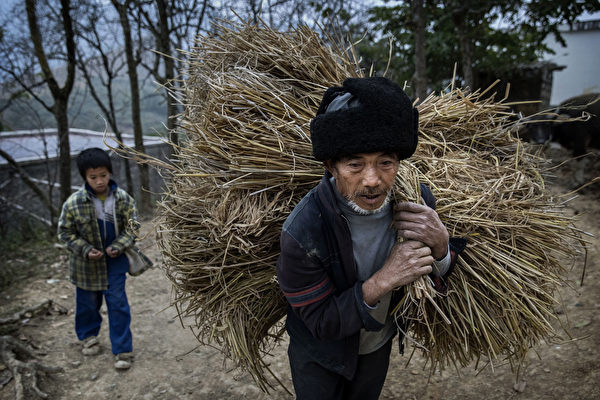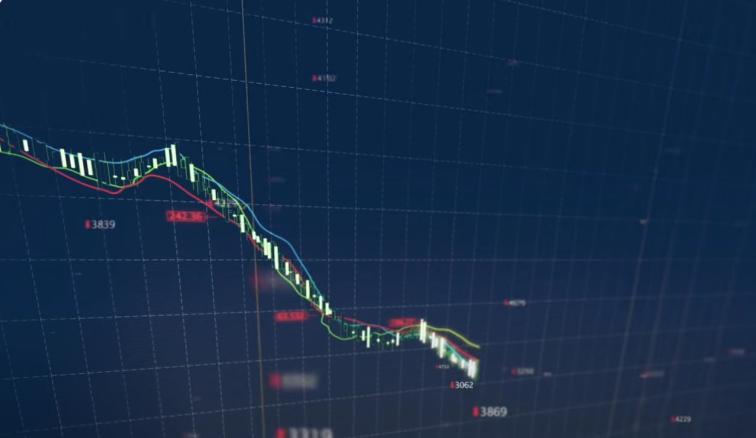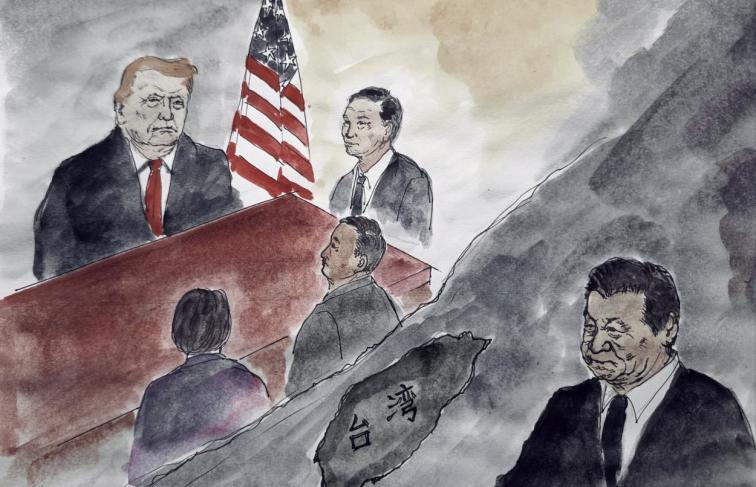A large number of so-called "country-of-origin washing" advertisements have recently appeared on Chinese social media platforms Xiaohongshu and Douyin. (Screenshot from Douyin)
[People News] Recently, a surge of advertisements promoting so-called "country-of-origin washing" has appeared on Chinese social media platforms Xiaohongshu and Douyin (TikTok’s Chinese version). These ads not only publicise new re-export rules involving third countries like those in Southeast Asia, but also offer strategies to bypass high U.S. tariffs through indirect shipping and freight forwarding services. Some companies even claim to provide comprehensive “one-stop” solutions that can “legally minimise U.S. tariffs.”
According to a report by Radio Free Asia (RFA), a Douyin user named “Logistics Agent Lao Wang” claimed in a video that he had established a U.S.-approved re-export channel: “With origin traceability customs declarations, 80% of products can achieve full compliance through re-exporting. We handle the entire supply chain—from domestic customs declaration, vessel booking, transit port operations, secondary bookings, to customs clearance and delivery in the U.S. A full-package solution—absolutely top-tier. Only one company nationwide does this. Guaranteed smooth customs clearance.”
However, another Douyin user known as “Malaysia Bro” issued a warning that re-exporting through Malaysia is becoming nearly impossible: “Previously, I said that using Malaysia as a transit to the U.S. was a high-stakes gamble. Now even that window is closing. As of May 6, all goods bound for the U.S. must have a certificate of origin issued by the Malaysian government, not by trade associations.”
Many Douyin videos now warn that transhipment trade is facing unprecedented crackdowns, including the use of AI to monitor global shipping routes in real time. Authorities are inspecting even the smallest components in supply chains for origin, and violators could face up to 20 years in prison, fines of up to 300% of the evaded tariff amount, and retroactive investigations of profits over the past ten years. Countries like Vietnam, Thailand, and Singapore are also cooperating with enforcement efforts.
Chinese Exporters Exploiting 90-Day Tariff Exemption Window
A Taiwanese businessman based in Southeast Asia told RFA that following former President Trump’s recent announcement of U.S. tariffs on Chinese goods as high as 145% (with some as high as 245%), the U.S. granted 90-day tariff exemptions to over 70 countries. Many Southeast Asian nations and Taiwan only face a 10% tariff during this period. As a result, Chinese exporters are rushing to smuggle or re-route their goods through third countries by land and sea, bribing customs officials and using unauthorised shipping containers to dump products onto the U.S. market.
The businessman explained: “China shares land borders with Vietnam and Laos. Most goods are smuggled into Vietnam, where they bribe customs officials to issue certificates of origin. Labels are changed in China—products entering Vietnam get ‘Made in Vietnam’ labels; those entering Laos get ‘Made in Laos’ labels, and local certificates of origin are issued to qualify for the 10% tariff. Many Malaysian importers also use semi-smuggling or unauthorised shipping containers to bring goods in from China.”
He added, “Chinese exporters need to move their products within the 90-day window. If they sit on inventory in China, they’re stuck with goods no one wants to buy.”
Previously, origin-washing involved just relabeling. Some companies shipped semi-finished products to Vietnam under a nine-month duty-free “temporary import” arrangement. These parts were assembled and exported within the window to avoid tariffs. Since the start of the U.S.-China trade war six years ago, products must be at least 60% produced in Vietnam to qualify for a “Made in Vietnam” label. Enforcement has since tightened. Now, even semi-finished goods may be subject to high tariffs. Some southern factories are responding by expanding production to achieve 100% Vietnamese manufacturing.
As countries ramp up inspections of goods bound for the U.S., Vietnam is stepping up its checks on raw materials and imported goods to prevent issuing fake origin certificates. Thailand is increasing inspections of U.S.-bound products to prevent tariff evasion. South Korea’s customs office reported seizing foreign goods with falsified origin documents worth nearly 30 billion Korean won in Q1 2025, mostly from China and bound for the U.S.
Freight Forwarding Business Booms Amid Demand
Another Taiwanese businessman, Lee Meng-chu, told RFA that manufacturers relying on the U.S. market are desperate to find a way to survive: “A 60% tariff is practically a trade ban. To meet high demand, companies must find transit points to sell in the U.S. Freight forwarding businesses that can handle customs paperwork and origin certificates are booming—and so are their prices. Some even swap containers during transhipment in places like Malaysia.”
Lee pointed out that the short shipping distance between China and Southeast Asia makes this kind of origin-washing particularly viable. While it’s been a long-standing practice, the U.S. is now clamping down with reciprocal tariffs and tighter enforcement. Regional governments are also introducing stricter laws to plug loopholes and avoid diplomatic friction with the U.S.
He likened the booming freight forwarding industry on Douyin and Xiaohongshu to illicit trade: “No one loses business, but many will risk criminal business. Unless there are severe penalties, which only local governments can impose—neither the U.S. nor the Chinese government can punish the freight forwarders operating abroad.”
"Country-of-Origin Washing" Ads Reflect Deeper Trade Crisis
Sun Kuo-hsiang, professor of international affairs and business at Nanhua University, told RFA that the flood of origin-washing ads reflects the dire trade challenges facing Chinese firms and the complexities of global supply chain realignment. He warned that enforcement and regulation will only intensify. Companies relying on these strategies face increasing risks, including violations of international trade laws, severe sanctions, cargo seizures, market bans, brand damage, and retaliatory actions from importing countries.
Sun noted that Western countries already impose anti-dumping and anti-subsidy duties on key Chinese exports such as solar panels, steel, bicycles, and textiles. By disguising the country of origin, firms can reduce tax burdens and remain competitive in overseas markets.
He added that many Chinese firms initially planned to fully relocate production to Southeast Asia or other low-cost regions, but due to delays in factory construction and output, they resorted to origin-washing as a stopgap measure. Although Western countries are stepping up origin verification efforts, enforcement still lags behind. Meanwhile, origin-washing services are being blatantly advertised.
Sun also observed that social media algorithms accelerate the spread of such ads by boosting their visibility. Some advertisers offer full-service packages—including origin certificates, subcontracted processing, and repackaging—lowering the technical barriers for companies seeking to fake product origin.











News magazine bootstrap themes!
I like this themes, fast loading and look profesional
Thank you Carlos!
You're welcome!
Please support me with give positive rating!
Yes Sure!